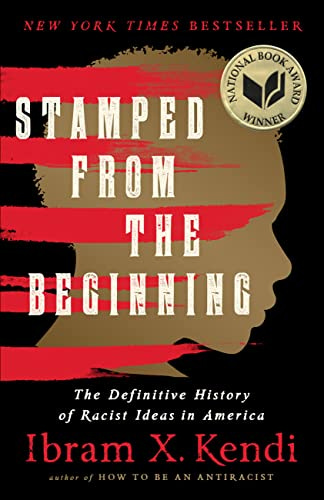I grew up believing that racism was about hatred. As long as I didn’t feel hatred towards some particular black person or towards black people in general, I could be confident that I was not a racist.
But racism it is not about hate.
I am reading Ibram X. Kendi’s “Stamped from the Beginning.[1] Kendi defines racism as “any concept that regards one racial group as inferior or superior to another racial group in any way…” One doesn’t need to hate to be a racist.
A common argument that black people are inferior goes like this.
1. There are many racial disparities in America.
2. Black people are always on the losing end of the disparities. For example:
The median wealth of white households is 13 times the median wealth of black households.
Black people are 13 percent of the population, but they own only 2.7 percent of the nation’s wealth.
Black people are 5 times more likely to be incarcerated than white people and young black men are 21 times more likely to be killed by police than young white men.
3. Therefore, there must be something wrong with black people.
But just being on the losing end of these disparities is not proof that black people are inferior. That is a racist conclusion. The better explanation is that for generations black people have been subject to systemic race-based discrimination -- discriminatory, exclusionary and punishing laws, policies and practices. See, e.g. A History of Racist Federal Housing Policies.
Although well-documented, systemic racism is complicated. Its motives are often disguised and denied, and its intentionality is difficult for people to believe. After yesterday’s decision in Students for Fair Admissions, Inc., we know that there are six Supreme Court justices who cannot or will not believe it.
On a journey to being anti-racist, we need to think less about hate and care enough to challenge simplistic racist tropes, including the trope that racism is about hate. Otherwise while we stay busy congratulating themselves for not hating, or frankly for not thinking about black people much at all, systemic race-based discrimination is free to continue unabated, keeping anti-black oppression alive and well.
[1] Look for the second edition (2023.) It helpfully addresses many events which took place after the 2016 publication of the first edition including George Floyd’s murder, anti-wokism, and the drive to purge black history from libraries and curricula. I have only found the 2nd edition in hardback and kindle editions.


